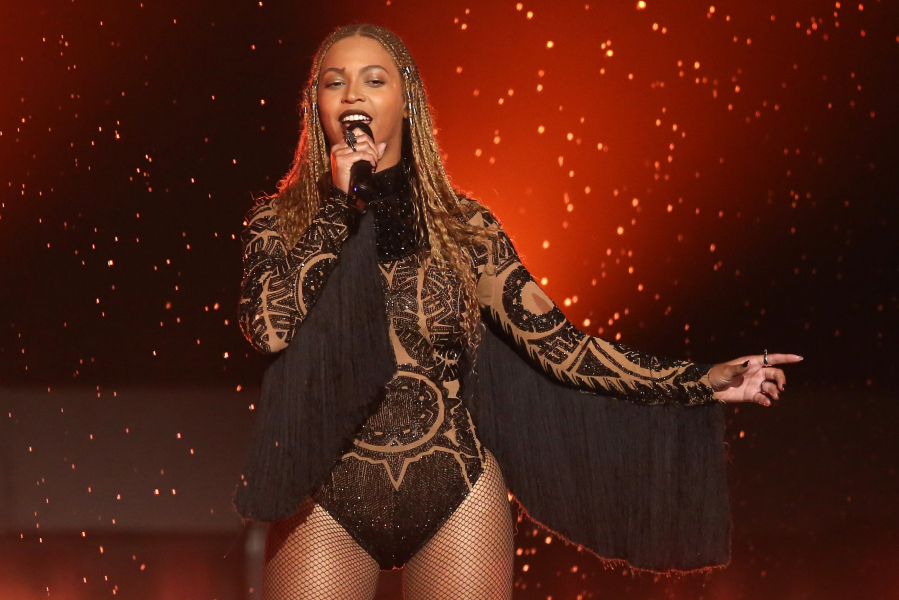What did we see when we saw Beyonce in 2016?
The most famous American pop musician who sold out stadiums and single-handedly made the Super Bowl halftime show essential viewing?
Or a defiant polemicist who placed black women’s emotional lives in the middle of the most radical LP of the year?
Or a Southern artist and country-music lover whose hope for a Hillary Clinton presidency was nonetheless rejected by just enough voters at the ballot box?
In 2016, Beyonce was everywhere: music, film, sports, politics, life. But was her album “Lemonade” a glimpse at the inevitable future of a changing America or a sign of how much pain and struggle is still to come?
One remarkable aspect of “Lemonade” is how its meaning has grown and deepened over the course of a very difficult year. When the LP was released with no pre-fanfare in April (as an HBO film and Tidal streaming exclusive), much of the popular-media conversation focused on its up-close look at her marital travails with Jay Z.
But black women recognized that the album was something much more vital and political. Its themes — reconciling with pain and mistreatment, finding comfort from generations of women — were of the utmost importance.
“For black women, (‘Lemonade’) was very radical from the very beginning, and it was received that way. Black women discussing its revolutionary aspects changed the conversation about it,” said Kinitra D. Brooks, an English professor at the University of Texas at San Antonio.
Brooks taught a course on Beyonce and black women in popular culture.
“Black women’s acts of caring and healing are political acts, and those things have never been separated. What’s revolutionary about (Beyonce) is that she can make it popular,” Brooks said.
Her searing collaboration on “Daddy Lessons” with the Dixie Chicks at the Country Music Association Awards proved that her fundamental Southern-ness was a unifying force across genres. Beyonce’s brilliance was just about the only thing America agreed on this year.
Almost.
When she took the Super Bowl halftime show stage in a sexy, severe black-leather getup purposefully evoking the Black Panthers, she didn’t just render fellow performers Bruno Mars and Coldplay sidenotes to the day.
She walked into the lion’s den of mainstream, conservative American sports culture and gave back the blackest, most visually provocative set the event has seen. If the fallout from Janet Jackson’s Super Bowl wardrobe mishap saw America shaming a black woman’s body on its biggest stage, Beyonce’s set saw her take a crowd of millions and stand tall, her vision intact.
“Bey’s instrument is the camera,” Brooks said. “She’s very aware of how her look plays, and she plays the camera just as smoothly as Nina Simone played the piano. She chooses black dancers with different body types all over the spectrum of black beauty, and (at the Super Bowl) she went and pushed it in the face of America at arguably its most blood-hungry.”
Whatever Beyonce does next, that’s a reminder — and a radical gift — that we’re going to need to hold close.



